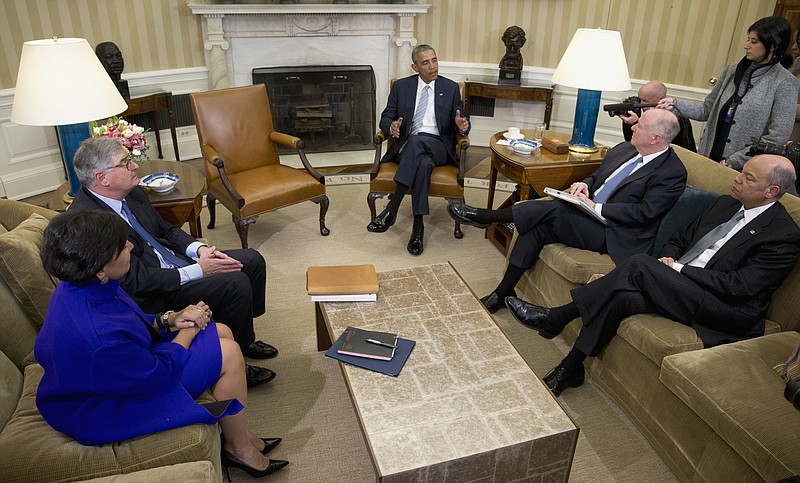Today, 538 electors will gather to uphold their role in our constitutional republic to officially cast ballots determining the United States president. That vote based on the states' election results on Nov. 8 should be 306 electoral votes for Donald J. Trump and 232 for Hillary Clinton. If neither candidate reaches the lawful 270 needed, the U.S. House will convene to cast ballots for the purpose unfulfilled by the electors.
Currently, there are 247 Republican members of the House and 188 Democrats. Donald J. Trump will be the 45th president of the United States.
This reality is being rejected by many who, some organized via oppositional activism and others with raw emotion and hysterics, live in a parallel universe of blame aimed at various targets other than the true reason for Hillary Clinton's loss.
The national headlines echo the refrain that Russians "hacked" our elections in a nefarious and illegal manner to aid Trump's victory.
Let's get to the most important point: Every effort to protect Americans through our personal emails, credit card purchases, election voter files, voting machine operations, health care data, electrical grids, banking systems, etc., should be a priority of our federal government in its role as defender of our national security. Sadly, either aggressively pursuing hackers has not been a priority, our government has failed, or both.
So, while claims exist of interference with the presidential election, let's look at just one recent documented hack.
In a July 2015 Washington Post article, the Office of Personnel Management reported the "greatest theft of personnel data in history," affecting "a total of 22.1 million" people, occurred in 2014. According to Michael Adams, an "ex-U.S. Special Operations Command sergeant major with more than 20 years' direct experience leading and executing classified combat and intelligence operations," the foreign data theft involved both sensitive personnel data and information with "counterintelligence consequences."
In his writing, Adams revealed this massive cyber-hack involved "security clearance files of current, former, and prospective federal employees" along with "SF-86 forms which contain intimate details about the prospective employee's personal life, family members, and other contacts."
During the last five years, intrusions and hacks have been traced to both Russia and China involving the White House, the Department of Health and Human Services, the U.S. Postal Service, the State Department, the Department of Defense and the U.S. Army, just to name those within federal government. Yahoo, Target, AT&T, UPS, Home Depot and JP Morgan Chase are a few of the major private businesses cyber-hacked.
It's about time cybersecurity has become a priority. But has it? Last Wednesday evening, there was an abrupt cancellation of the U.S. House Intelligence Committee briefing set for Thursday to review claims of Russian election interference. The CIA rejected the request to participate, and the FBI, NSA and Office of the Director of National Intelligence did not respond to the panel with the most senior jurisdiction over intelligence.
But, leaks from both the Democratic National Committee and Hillary Clinton show their preference was running against Donald Trump. The day before the Nov. 8 election, Politico Magazine wrote a piece entitled, "They Always Wanted Trump," that featured a July 2015 email discussing: "How do we prevent Bush from bettering himself/how do we maximize Trump and others?" The last sentence of the article declared, "But Clinton, at least, got the opponent her aides wanted, and a strategy to stick to."
It seems now her strategy is to blame others.
Robin Smith, a former chairwoman of the Tennessee Republican Party, owns Rivers Edge Alliance.

